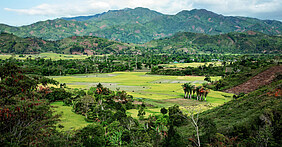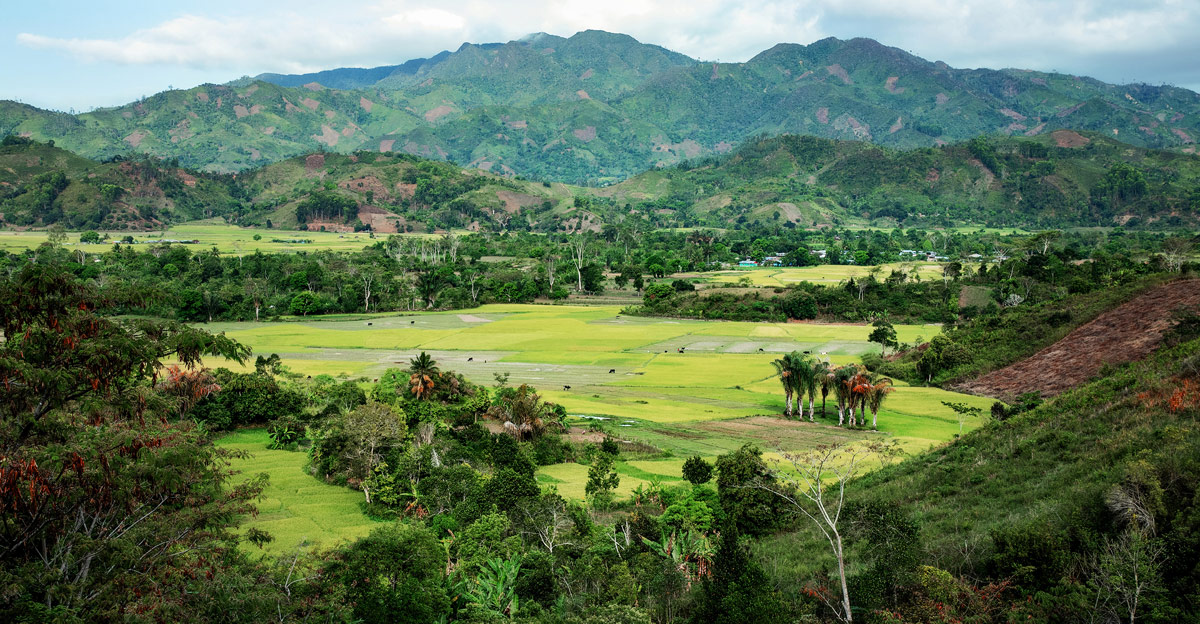The figures in the Sustainability Record 2023 clearly demonstrate that Symrise achieved key sustainability targets last year. For example, the Holzminden-based Group was able to increase the share of strategic biological raw materials from sustainable sources to 95 percent. This mainly resulted from the more stringent monitoring of its entire value chain and closer collaboration with its suppliers. In compliance with the German Supply Chain Due Diligence Act, Symrise performed sustainability risk assessments of all its suppliers. 70 percent of them also reported on their own emission reduction measures last year.
In addition, with its transition to sustainable processes, Symrise improved the ecoefficiency of chemical oxygen demand in wastewater by 10.7 percent. It also made progress in cutting water consumption, with a reduction of 30.9 percent at dry locations in countries such as Egypt, India, Mexico, Spain, and Chile. Moreover, the company reduced greenhouse gas emissions from purchased raw materials and services in the supply chain (Scope 3) by around 43 percent between 2016 and 2023.
Taken together, these successes are enabling the company to achieve its overarching climate goals. From 2030, Symrise aims to operate net zero for direct emissions (Scope 1) and indirect emissions from purchased energy (Scope 2). The company is seeking to reduce emissions in the supply chain (Scope 3) by 30 percent. It intends to achieve net zero Group-wide by 2045.
Low Carbon Transition Plan and Houston program for green transformation
To achieve its ambitious sustainability targets, the company has launched the Houston program. It aims at establishing a new mindset, a joint framework, and a common way of working across all locations and divisions. The central element of the program targets the uniform calculation of the carbon and water footprints at product and company level across the organization. This makes it possible to comprehensively measure, analyze and improve the company’s environmental impact.
In this way, Houston is making a key contribution to the effective implementation of Symrise’s Low Carbon Transition Plan. It consists of many individual measures to reduce CO2 emissions. The company has already implemented a very future-oriented measure at its location in Granada, southern Spain, by investing comprehensively in a photovoltaic system. Covering an area of 4,800 square meters, the system generates around 1.6 million kilowatt hours of electricity each year. This equals 15 percent of the own production requirement of this location. In the future, Symrise wants to replace fossil fuels by hydrogen. Product recipes represent another focus area. By improving their eco-design, emissions can go down by an average of 30 percent.
“We source most of our raw materials directly from nature. Consequently, we see it as our duty to protect the climate and biodiversity,” explains Bernhard Kott, Chief Sustainability Officer at Symrise. “In addition, our customers are increasingly demanding sustainable products. We therefore aim to continue investing in process efficiency, thereby minimizing our environmental footprint, and promoting biodiversity. This should result in much lower energy and CO2 costs. With this strategy, we are ensuring that Symrise remains the industry pioneer in both environmental and business terms.”


